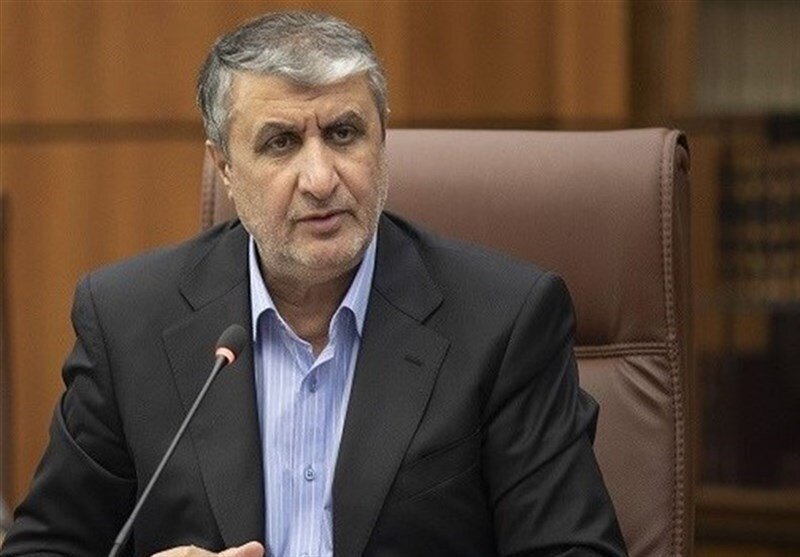Installing new IAEA cameras depends on adherence by JCPOA parties: nuclear chief

TEHRAN- Mohammad Eslami, head of Iran’s Atomic Energy Organization, has stated that the installation of more monitoring cameras in Iran’s nuclear sites would be contingent on the other parties’ adherence to the 2015 nuclear agreement, officially called the JCPOA.
In an interview with Al-Jazeera, he noted, “The commitment of the parties and America to the nuclear agreement will be met with an Iranian commitment.”
He added that reversing the reduction in compliance with the nuclear agreement necessitates the lifting of all sanctions.
Eslami further emphasized the continuous communication with the International Atomic Energy Agency (IAEA), stating that “our dialogue with the agency continues, and the file of highly enriched uranium atoms was recently closed.”
He expressed expectation that the political debates surrounding Iran’s nuclear program could come to a conclusion in 2023.
Eslami emphasized that neither military force nor economic sanctions can put an end to Iran’s nuclear program.
The Israeli regime, he said, is well aware that its threats to attack Iran’s nuclear facilities are unfounded and outside the scope of its capabilities.
He cautioned that military attacks on Iran’s nuclear facilities would be unsuccessful and result in a swift and catastrophic retaliation.
The Iranian nuclear chief also stated that Iran is open to constructive nuclear cooperation with its Arab neighbors.
On Wednesday, he said that Tehran had advanced its nuclear technology despite two decades of industrial sabotage.
“The country’s nuclear science, which serves as a propeller for all industries, has come by while much industrial sabotage was committed to impede its advancement over the last 20 years,” Eslami explained.
“Assassination of Iran’s nuclear scientists, sanctions, psychological operations, and recourse to international organizations towards exertion of more pressure, none could impede the advancement of the country’s nuclear science,” he stressed.
Israel has made several sabotage attacks on Iran’s nuclear plants and assassinated up to seven Iranian nuclear experts.
In tandem with its efforts to throw doubt on the nature of Iran’s nuclear energy program, the regime’s officials have waged a raucous propaganda campaign aimed at undermining the Islamic Republic’s nuclear activities.
Israel, the only nuclear weapons possessor in West Asia, has refused to join the Nuclear Non-Proliferation Treaty (NPT) owing to assistance from the United States, its closest and longest friend.
Eslami recalled that Iran’s adversaries “resorted to saber-rattling every day, saying they would attack the country's nuclear facilities.”
But now, Iran has become an international pioneer in nuclear energy, and “the enemies cannot tolerate this,” he continued.
The enemy is opposed to the Iranian people’s prosperity and calm, the nuclear chief stated.
“Today, by God’s grace, we have attained all achievements in the field of nuclear technology,” Eslami said, putting the progress down to “ardor and round-the-clock endeavor.”
In an event on August 27, he said that Iran’s nuclear sector directly impacts people’s lives.
Eslami also said in addition to the nuclear fuel cycle Iran is capable of designing, building, and maintaining nuclear reactors.
Eslami also pointed to the West’s hostile approach toward Iran for its nuclear activities, saying, “Our enemies were and are against Iran’s nuclear industry, but they all should know that the nuclear industry is a strategic industry.”
Eslami also said the number of disputes between Iran and the International Atomic Energy Agency has been reduced from four to two and that Iran continues to cooperate with the UN nuclear body within the framework of the Safeguards agreement.
The conflict between Iran and the IAEA was sparked by the Israeli-influenced charges against Tehran’s peaceful nuclear program.
Eslami went on to stress that the talks between Iran and the IAEA are intended to settle the disputes, noting that negotiations are progressing within the scope of the Islamic Republic’s overall policy.
Elsewhere in his remarks, the nuclear chief said, “One of our urgent needs is nuclear diplomacy, especially with regional states.”
He added, “We hope to have sustainable nuclear cooperation with different countries.”
Additionally, Eslami said that the IAEA deputy director general will make a short visit to Iran.
Leave a Comment